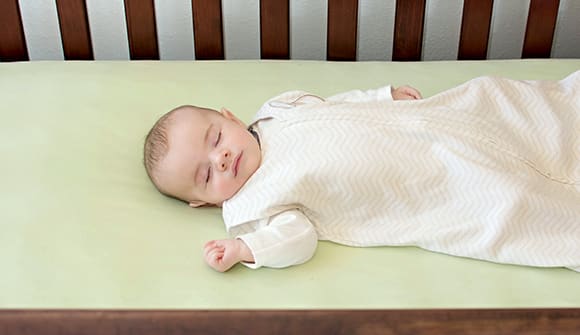It’s just asthma, right?
The recent death of a teen Broadway star highlights how serious this condition can be.
Article Author: Juliette Allen
Article Date:

“Can my child really die from asthma?”
As lead asthma educator at the Community Asthma Partnership at Wolfson Children’s Hospital (CAP-W), I encounter this question almost daily from parents, caregivers and even from asthmatic children themselves during a trip to the Emergency Department or admission to the hospital.
The death of 13-year-old Broadway star Laurel Griggs in November 2019 made headlines around the world, reminding people of the serious, potentially deadly results of asthma.
Looking into the eyes of a young child and telling them “Yes, asthma can be deadly” is always hard for me, but my response also serves as a reminder for the family that their child has a chronic illness. Asthma cannot be cured, but it can be controlled.
Coughing, wheezing, sneezing and more
Because asthma can be controlled, it’s critical for asthma educators to help families understand what asthma control looks likes for each individual child. Asthma warning signs can vary from child to child and season to season. Common warning signs that we always hear about are coughing, wheezing and sneezing, but there are many others. For example, a flare of eczema can be a sign of asthma.
If you are a caregiver for an asthmatic child, it’s important to understand your child’s individual warning signs.
Oftentimes, a child who rarely experiences asthma symptoms will end up in the Pediatric Intensive Care Unit (PICU) at Wolfson Children’s Hospital, seemingly out of nowhere, for severe asthma exacerbation, or progressive worsening of symptoms. These children are the ones we worry about the most.
3 questions to ask yourself about your child’s asthma
- Does your child take his or her rescue inhaler more than two times per week?
- Does your child awaken at night with coughing more than two times per month?
- Do you refill your child’s quick-relief inhaler more than two times per year?
If the answer is yes to one or more of those questions, your child’s asthma is NOT controlled.
Under control?
Using a daily controller inhaler, if prescribed by your child’s provider, is very important to achieve asthma control. This medication should be taken every morning or night, no matter what. I sing songs, make up rhymes and have even set a child’s phone to a certain ring tone to help them remember! I do whatever it takes for the child and parent to remember to use the controller medication daily.
It seems simple, but parents commonly only use this medication for just a few days after the asthma attack or only when their child is having issues. There is a difference between rescue medication and controller medication. Make sure you understand the benefits of both medications. When in doubt, ASK!
CAP-W currently coordinates care for 122 high-risk asthmatic patients at Wolfson Children’s Hospital. To be considered high-risk, a child must have had one PICU admission, two hospital admissions or four ER visits within 12 months. We reach out to the families every three months to provide support and resources in an effort to continue reducing asthma ER visits and hospital admissions.
Asthma workshops with CAP-W are offered to anyone in the Jacksonville area who has a child with asthma. The workshops offer parents and caregivers an opportunity outside of the hospital to learn more about their child’s asthma and understand what questions to ask their doctor. For more information, call 904.202.5132.
Our guest columnist is Carey Smith, RRT, lead asthma educator at the Community Asthma Partnership at Wolfson Children’s Hospital and THE PLAYERS Center for Child Health at Wolfson Children’s Hospital.
Source: CNN



